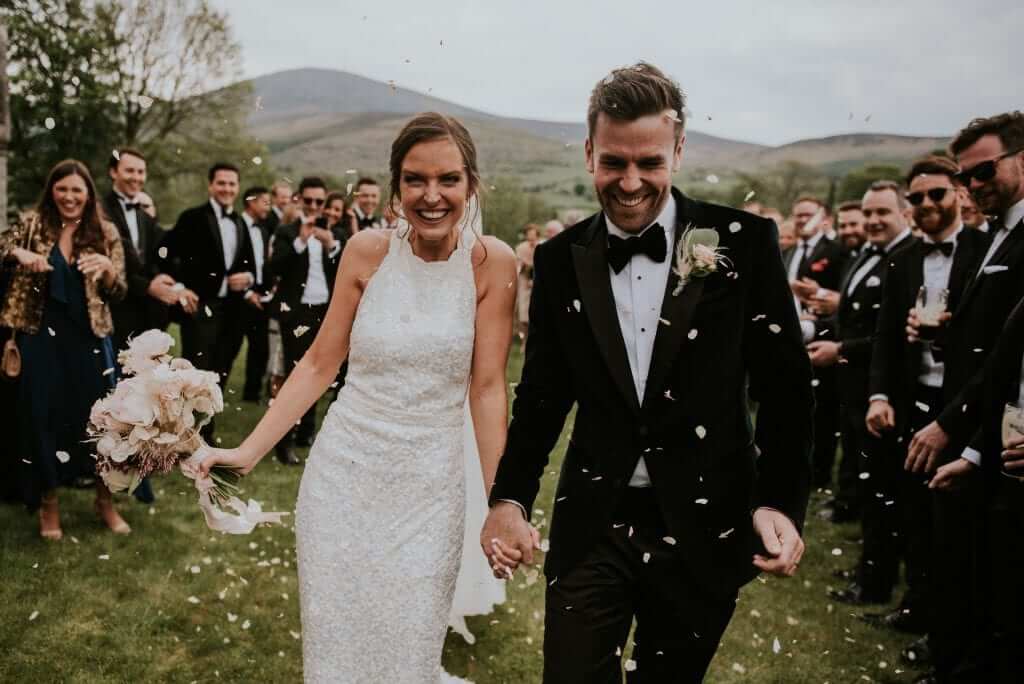The Difference Between Wedding Ceremonies

If I found this confusing, no doubt so have you! One thing that I hear couples ask time and time again is what’s the difference between a celebrant and all other names of those performing ceremonies i.e humanist, solemniser, priest etc.
There are many forms in which you can get married, the meaning to which that happens is a very personal choice. The ways in which you can get legally married include: Religious, Spiritual, Civil, Interfaith and Secular. I have also included a Celebrant at the end so that you can distinguish.
All must be performed by a legally registered solemniser.
Religious:
If we go back 15 years ago, 90% of the wedding’s in Ireland would have been through the church. 15 years on, brides and grooms as well as same sex couples have a wider variety of options to legalise their marriage. I got married in a church myself. Your wedding is officiated by a priest or minister of your religion. The ceremony is very much in the ebb and flow of your faith’s church process. There are certain rituals that make up all of the parts that ensure that it is legally binding and in-keeping with the faith requirements of your religion. Unfortunately, same sex couples cannot get married in certain religious ceremonies. To get married in a church, you need to contact that secretary’s office and express your intent to be married in that parish by the residing priest. If this is not your own parish, you will need to get a letter of release from your own parish office.

Spiritual:
Spiritual ceremonies are ceremonies where there is a faith or belief system. My understanding is that they are are fully legal ceremonies performed by a legal solemniser. The ethos of the spiritual ceremony is that it is tailored around what is spiritual to the couples themselves. This means that if you feel connected to a particular religious reading or not religious at all, then that is carved out to create a bespoke celebration for you. There are symbolisms within the ceremony to signify the marriage such as hand fasting, unity candles and sand ceremony to name but a few. Spiritual Ceremonies Ireland are the best resource to understand the intricacies. I attended a wedding with a spiritual ceremony and it was absolutely beautiful.
Interfaith:
Similar to spiritual ceremonies but these are ordained persons that do not reside like a priest in parish. They dont have a parish etc. They travel to your venue or wherever you choose to get married. The can perform legal ceremonies for all faiths but if you do not want any religious references thats no problem. The One World Minister website is one that I came across a few months back and thats a pretty good resource.
Civil:
This is a non-religious/secular ceremony but legally binding. It is performed by a state official and can be performed in your local registry office or registrars will come and legally marry you in HSE approved venues. The venue of choice must comply withe their requirements. Same sex marriages are performed by the registrar. They are conducted Monday to Friday 9-5pm and are all about the legal only. There is not much in the way of readings, music etc. There cannot be any religious or spiritual references in that ceremony. For more information visit the HSE website. Many would opt for this ceremony and then do a non legal ceremony in front of guests with a Celebrant (outlined below). A huge favourite during Covid. Marry now in the registry with just witnesses and then do the blessing when you can have the big party. Also most couples that get married abroad would get married with the registrar and then do the blessing in their chosen destination.
Secular:
So this part is where people get confused a lot as there are various offerings here. These particular ceremonies are performed by a legally registered secular solemniser. Secular means non religious but they have a belief system or view point. That being that there is no god or super natural existence. Im not an expert in humanism but my understanding is that their belief system is not one with religion but more about the actual visible world we live in (happy to be corrected on this one!). If you do have a strong faith it might not be the right alignment for you. They are definitely more personal events where you can carve the format a little bit more. Ive been to one ceremony and it was really special. Beautiful actually. For more detailed understanding of Humanist celebrations, I would encourage you to review the HAI website. What can be a little confusing is that humanists also refer to themselves as celebrants and not all celebrants come from a humanist background or can legally marry you. It is important to understand each side.
Celebrant:
A celebrant is a non-legal celebrant of a wedding. Celebrants can perform a very tailored approach as the legal part of your wedding is not there. What I mean by that is that you would need to be legally married first and then may opt for a celebrant for the actual ceremony feel. Many couples that get married with the registrar or even get legally married during covid and want the party later, choose this option. A celebrant can create pretty bespoke ceremonies and if you want some religious readings you can do this. I see this being popular amongst couples with multi faith, meaning the couples are coming from different religious backgrounds. I found the Irish Ethical Celebrants Society a good place to understand this and they have a list of members too.
I am more than happy to build on this so if anyone has feedback please send my way!
Photo Credit:





